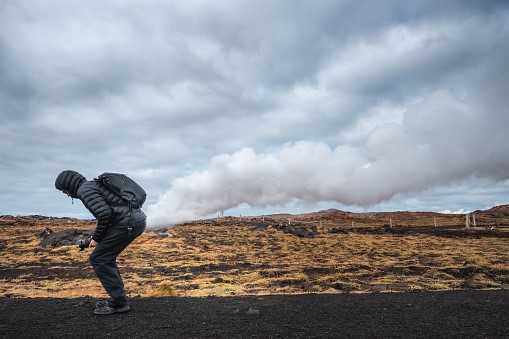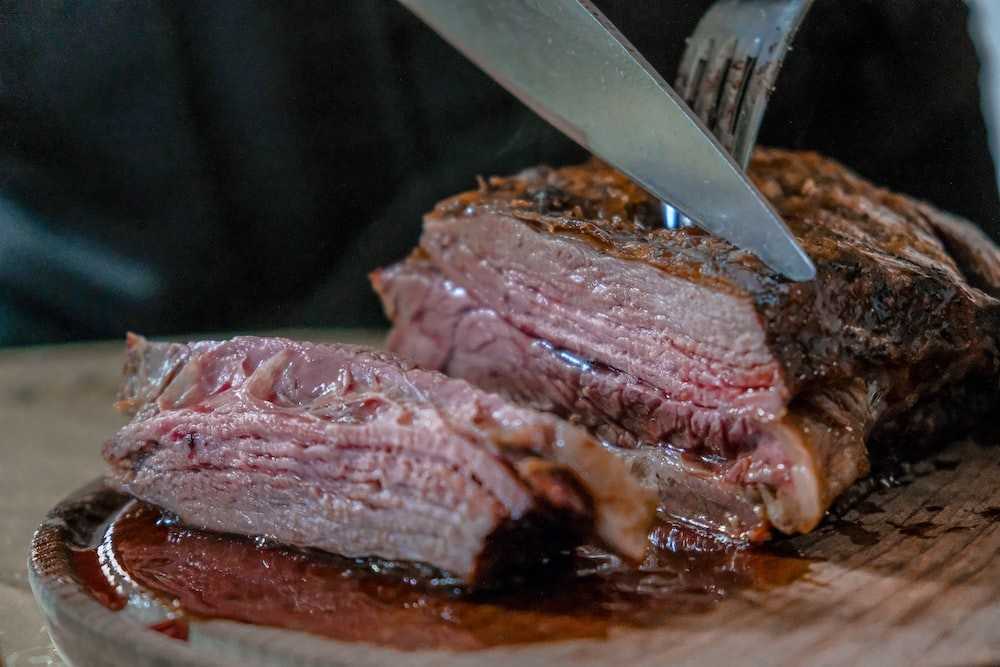When we talk about protein farts, it simply means the excessive number of smelly farts which a person may experience on a protein-rich diet.
When we talk about farting, its due to flatulence. Flatulence refers to excessive formation of gases in the stomach or intestine—is usually associated with noticeable flatus, belching (burping), borborygmus (a rumbling or gurgling noise made by the movement of fluid and gas in the intestines), abdominal distention (a distended abdomen is abnormally swollen outward), or a combination of these signs.

Flatus, rather than flatulence, is the term that should be used for gas expelled through the anus, which we call as farting. In our intestinal tract, there are number of gases, like nitrogen (N2), oxygen (O2), hydrogen (H2), carbon dioxide (CO2), and methane (CH4). But these are generally odourless gases, and constitute 99% of the total gas volume in humans.
The foul & unpleasant smell in your farts is generally due to the trace gases that contain sulphur compounds such as such as hydrogen sulphide, methanethiol, and dimethylsulphide, in which hydrogen sulphide is the one responsible at large for the extreme smell. However, it’s important to remember it’s normal for the gas you pass to sometimes smell a bit.
Flatulence is a normal biological process and is something everyone experiences regularly. Some people pass wind only a few times a day, others a lot more, but the average is said to be about 5 to 15 times a day.
There can be many reasons for gas formation and flatulence, but our focus would be on the large amount of gas is formed from bacterial fermentation in the colon. The gut microbiota (formerly called gut flora), is the name given today to the microbe population living in our intestine, contains tens of trillions of microorganisms, including at least 1000 different species of known bacteria with more than 3 million genes.
Acc. to a study, the main source of nutrients arriving to colonic microbiota is composed by a large diversity of complex glycans including undigested polysaccharides (cellulose, hemicellulose, lignin, resistant starch pectin and oligosaccharides) but also monosaccharides and disaccharides not fully absorbed in the upper part of the GI tract.
When we talk about the digestibility of proteins, after getting denatured and hydrolysed in the stomach, most of the protein is degraded and absorbed in the small intestines, and send into the bloodstream as individual amino acids. However, proteins are not always digested in this way. When the intake of protein is more, higher amount of protein is passed on to the large intestines, from the small intestines.
Acc. to a study, some proteins are not easily digested (either inherently based on their source or due to processing conditions) and can survive intact or partially intact to the colon. Likewise, some humans have low proteolytic capacity, which also increases the survival of intact or partially intact proteins to the colon. Proteins that reach the colon no longer serve as a direct amino acid supply to the host: the colon does not secrete digestive proteases to break them down and contributes little to net amino acid absorption. Therefore, any protein that arrives to the colon represents incomplete protein utilization. Fermentation of these proteins in the colon can produce gases such as hydrogen sulphide.

Acc. to the International Foundation for Gastrointestinal Disorders, most foods that contain carbohydrates can cause gas. By contrast, fats and proteins cause little gas (although certain proteins may intensify the odour of gas).
- The sugars that cause gas are raffinose, lactose, fructose, and sorbitol.
- Raffinose — Beans contain large amounts of this complex sugar. Smaller amounts are found in cabbage, Brussels sprouts, broccoli, asparagus, other vegetables, and whole grains.
- Lactose — Lactose is the natural sugar in milk. It is also found in milk products, such as cheese and ice cream, and processed foods, such as bread, cereal, and salad dressing. Many people, particularly those of African, Native American, or Asian background, have low levels of the enzyme lactase needed to digest lactose. Also, as people age, their enzyme levels decrease. As a result, over time people may experience increasing amounts of gas after eating food containing lactose.
- Fructose — Fructose is naturally present in onions, artichokes, pears, and wheat. It is also used as a sweetener in some soft drinks and fruit drinks.
- Sorbitol — Sorbitol is a sugar found naturally in fruits, including apples, pears, peaches, and prunes. It is also used as an artificial sweetener in many dietetic foods and sugar-free candies and gums.
2. Most starches, including potatoes, corn, noodles, and wheat, produce gas as they are broken down in the large intestine. Rice is the only starch that does not cause gas.
3. Dietary fibre is carbohydrate that is indigestible in the small intestine and reaches the colon relatively intact. In the colon, certain bacteria digest fibre (fermentation), which produces gas.
In a study, 164 participants were given 3 versions of high-fibre (app. 30 g per 2,100 kcal) diet, each different in carbohydrate, protein, and unsaturated fat composition. The prevalence of bloating at baseline and at the end of the carbohydrate-rich, protein-rich, and unsaturated fat-rich diet period was 18%, 24%, 33%, and 30%, respectively.
However, the relatively higher risk of bloating after switching to the protein-rich diet vs the other high-fibre diets might not be due to protein per se, but rather the differential distribution of soluble and fermentable fibres in our version of the protein-rich diet. Although all diets were matched on fibre, the protein-rich diet emphasized plant protein, i.e., beans, legumes, nuts, seeds, wheat, and soy products in lieu of animal protein.
Many of these food elements are rich sources of oligosaccharides, a soluble and highly fermentable fibre that is high in gas production. Legumes also contains many other soluble and fermentable fibres including resistant starch, pectin, guar gum, and inulin, which are moderate in gas production.
Also, certain proteins may affect the smell of gas. For example, cysteine is a sulphur-containing amino acid that is commonly present in many protein sources. When bacteria in the gut break this amino acid down, it may produce hydrogen sulphide, which is a pungent-smelling gas.

When it comes to protein foods or sources which can cause farting, they are mostly plant based protein foods, as we saw above. Apart from that, certain type of protein supplements can cause farting or flatulence. But generally that is because of the non-protein component in certain protein supplements, for e.g. lactose, which is mainly found in whey concentrate protein.
Also, some protein powders contain additives that cause flatulence. These include certain thickeners and sweeteners, like sorbitol. Also, plant based protein powders made from beans, grains and legumes, can also cause this issue.
The solution to such issues is also quite simple:
- Try switching to whey isolates, which are lactose free. Or, try vegan/plant based protein supplements, the ones made from pea and brown rice.
- Also, market today has a lot of excellent quality supplements which contain no artificial sweeteners, thickeners or preservatives. in India.
- Another way would be to scatter the protein you take in the entire day into different meals. Taking large amount of protein in one sitting, specially meat based protein sources, is a sure shot way to hamper the normal digestion of protein, and send them to the large intestine to ferment.
- Don’t go overboard on protein intake. Most people are ingesting way more protein than needed. Most people need 1-1.2gm/kg of bodyweight. People lifting heavy involved in more intense workouts, may need 1.4-1.6gm/kg bodyweight. But number of people needing more than this amount are rare, mostly top competitive athletes.
- Foods high in sulphur include meat, fish, pork, dairy, onions, and garlic. Though sulphur is harmless as such, but is the primary reason for the rotten smell in the farts.
- Add digestive herbs like triphala, saunf, ajwain, jeera, ginger etc. in your daily intake. They act as prebiotics, i.e. they help in increasing the beneficial bacteria in the gut, and also have several compounds in them, which aids digestion.
- Add adequate fibre through natural sources like fruits, vegetables, whole grains etc. Fibre supplements should be avoided unless advised. People with excessive flatulence are often advised to avoid fibre to reduce how much hydrogen, methane and carbon dioxide are produced by bacterial fermentation. However, this may increase hydrogen sulphide emissions. High fibre intake increases people’s fart production but not the subjective smell.
- Probiotic & enzyme supplements may help, if these steps aren’t helping. But in such a case, visit your doctor once.



